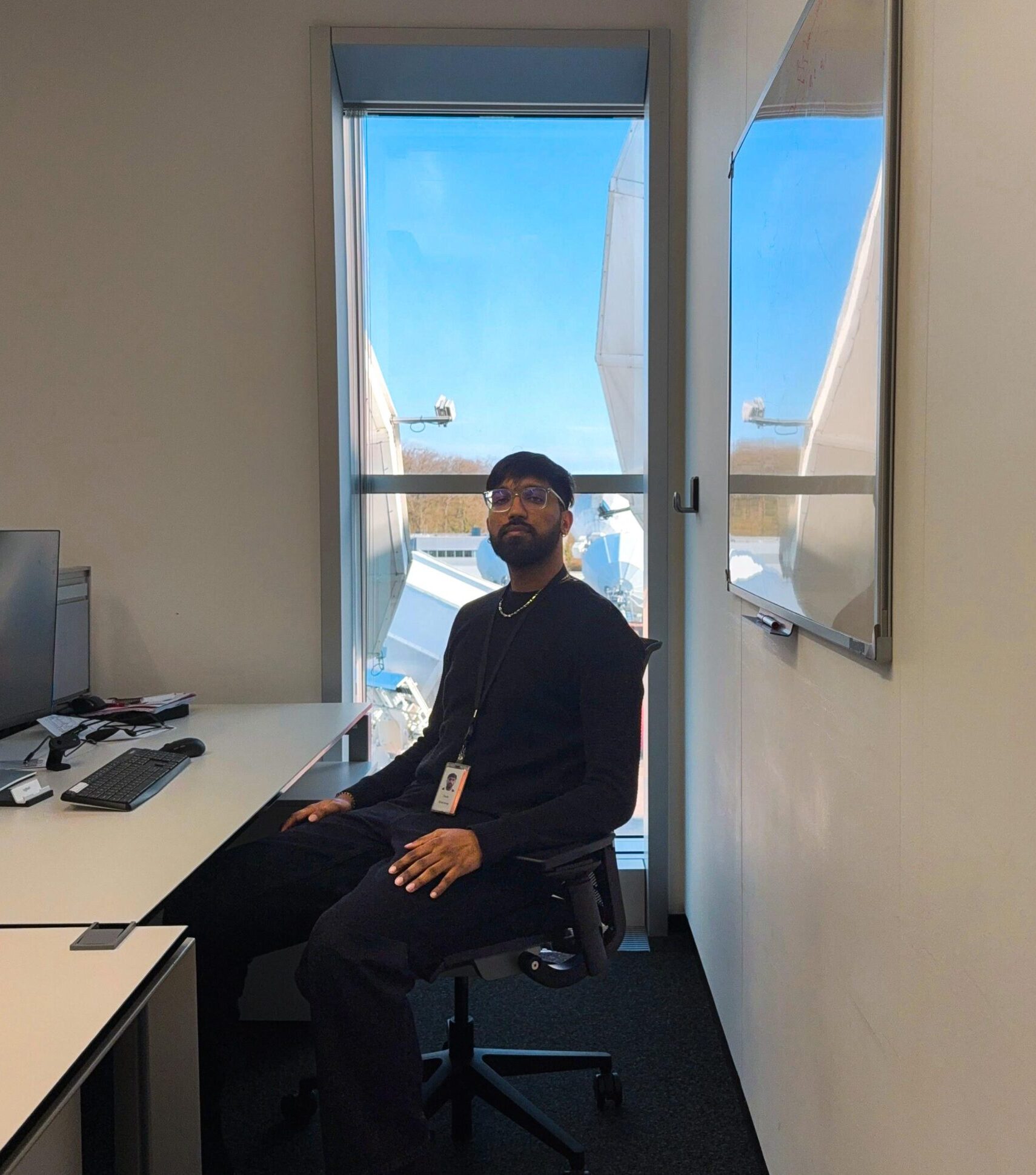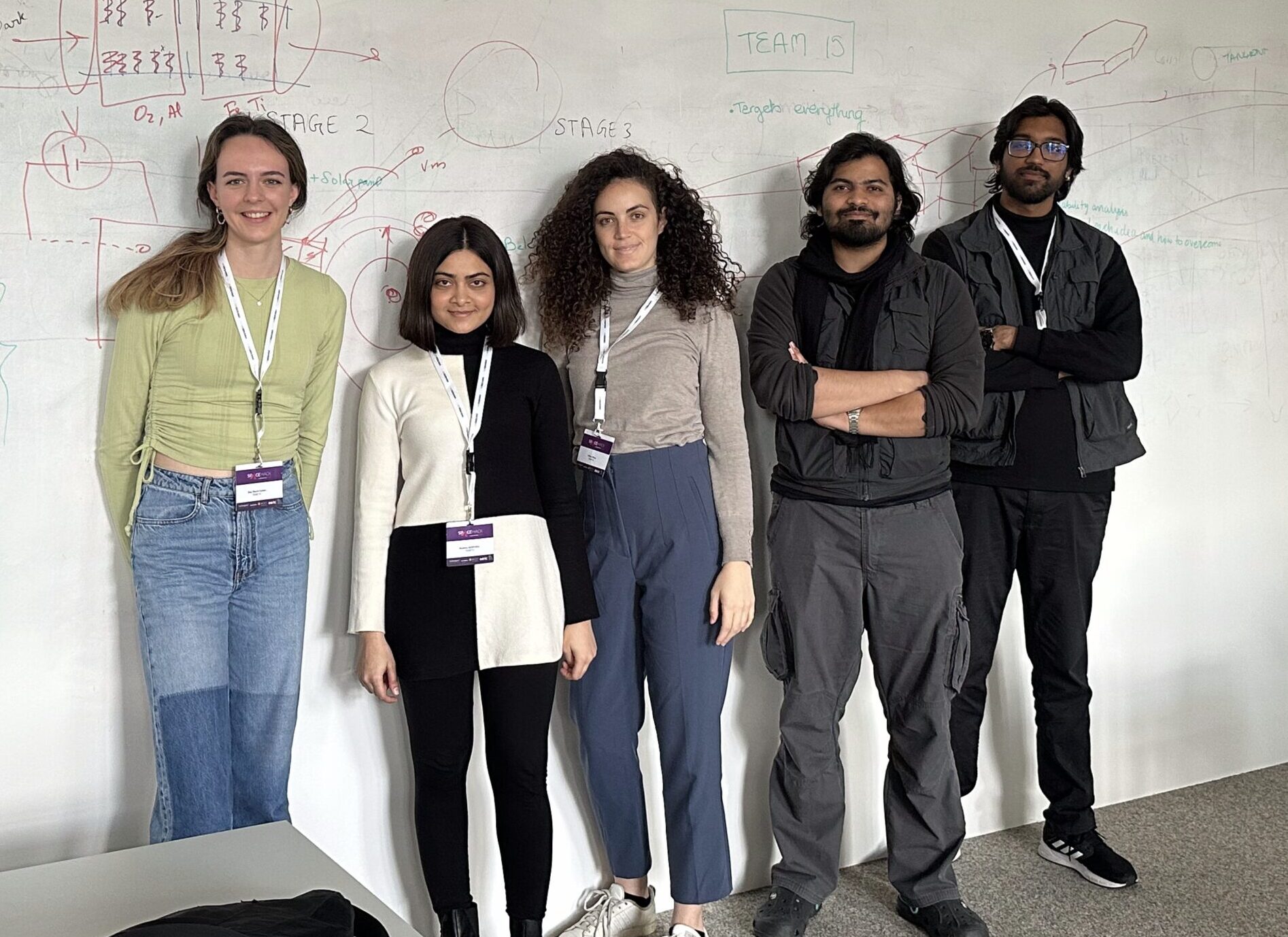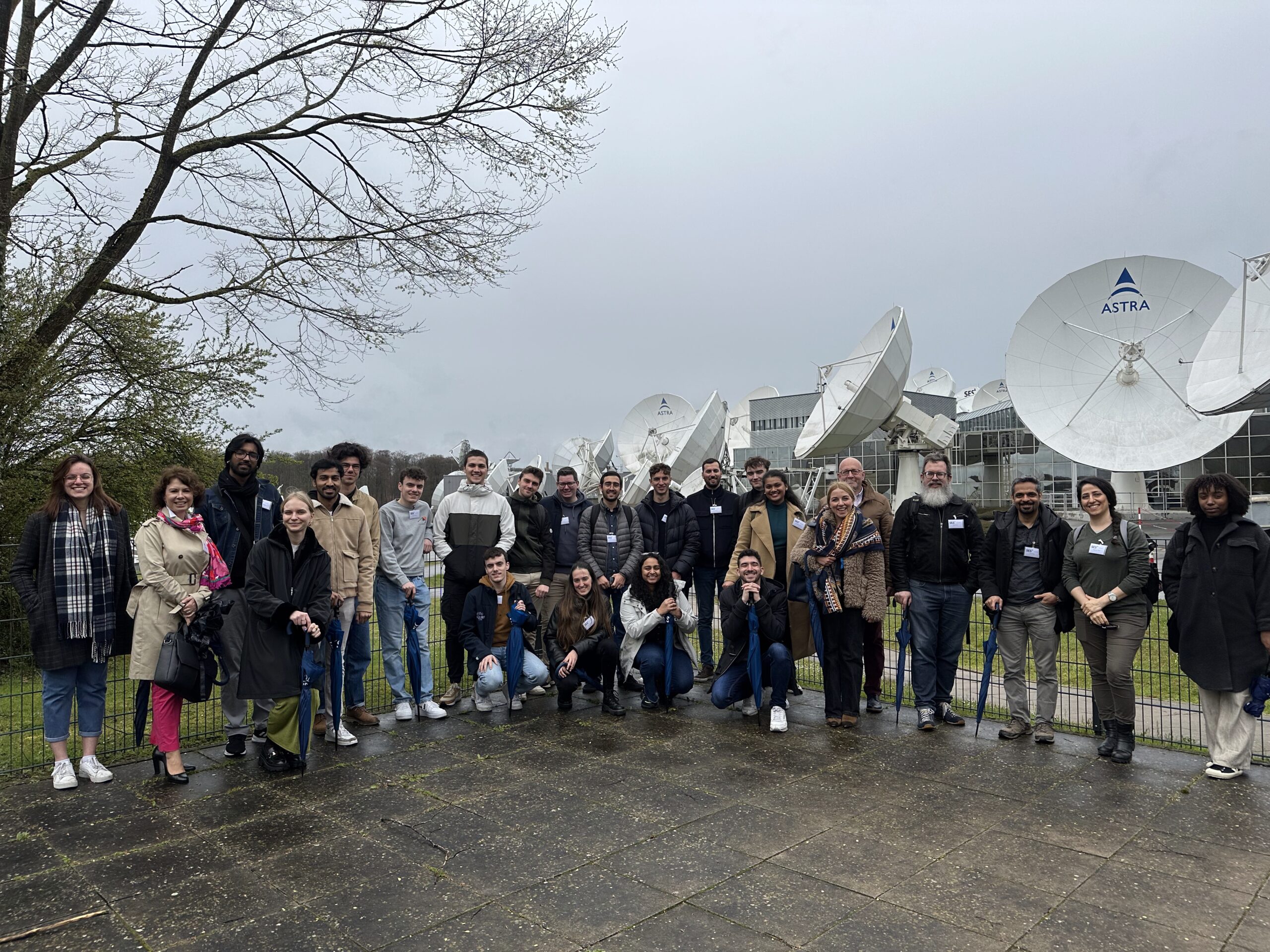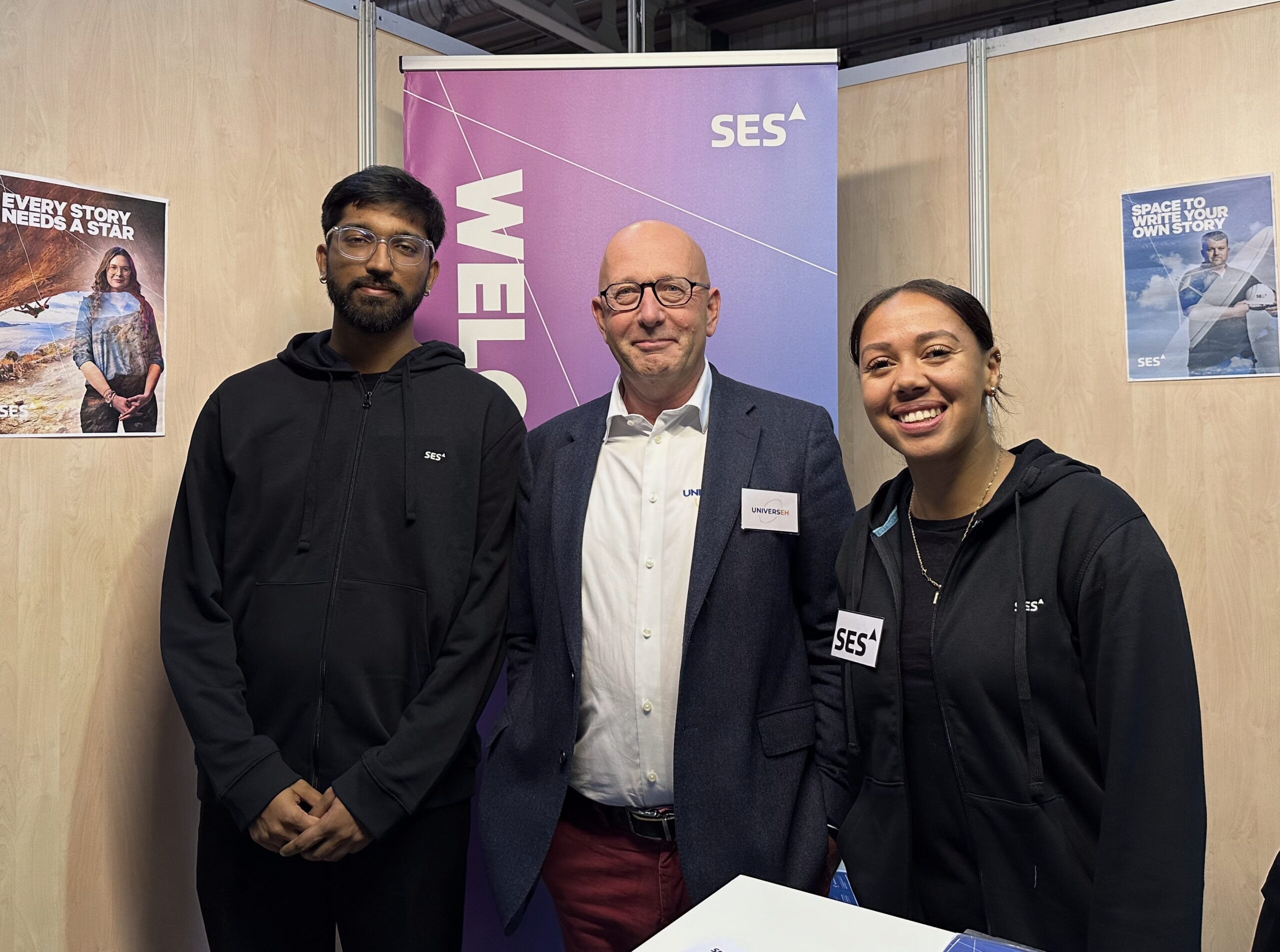In 2023, a three-day SpaceHack, organised by UNIVERSEH, in collaboration with Technoport Luxembourg, InTech, University of Luxembourg, ESRIC, and DLH, brought together 89 students in 15 teams to work on innovative projects exploring lunar exploration, communication, settlement, and resource utilisation. The hackathon challenged participants to push the boundaries of what’s possible in space and connect with experts from across Europe.

Originally from India, Derik Bhardwaj earned his Bachelor of Technology in Aerospace Engineering from UPES, before pursuing a Master of Science in Aerospace Engineering at ISAE-SUPAERO in Toulouse, France. His passion for space exploration and satellite technology grew stronger with each step.
For Derik, the SpaceHack was more than a challenge—it became the starting point of a journey that would lead him to SES, where he now works as a Junior Fleet Simulation Engineer.
We spoke with Derik about how UNIVERSEH helped him step into the space industry and what advice he has for students following the same path.
Which UNIVERSEH activity did you participate in, and what was your experience like?

“The first UNIVERSEH activity I participated in was the SpaceHack in 2023,” says Derik. “It was my first time in Luxembourg and my first experience stepping out of textbooks into real-world applications. The hackathon lasted three days, and we were pitching ideas for lunar exploration and solving problems together. For the first time, I could apply all the knowledge I had—physics, chemistry, biology, law, business.”
How did this experience contribute to your career path in the space industry?
“What started me on my career path was actually the day before the hackathon, when we visited SES Satellites,” he recalls. “SES is the only company in the world operating satellites at medium Earth orbit – 8,000 kilometers up. I saw their amazing facilities, people working on big computers and fancy screens, and real-time satellite operations. It impressed me a lot. I stood there thinking: ‘I would like to work here.’”
That thought became reality when Derik later returned to SES for an internship in constellation modelling, eventually securing a full-time role at the company.

What does your role at SES involve?
“Making and operating a satellite in space is hard. Making and operating two satellites is even harder. But a hundred? That’s an impossible task. No one would invest in this unless they had the answer to how it will work,” Derik explains.
“That’s what I do. I simulate and model a hundred satellites in space using software to see if they operate well, if they can be optimized, and if they meet expectations. This is my job as a constellation modelling expert.”
What was the most valuable skill or insight you gained from UNIVERSEH?
“Networking, networking, and networking,” he says with a laugh. “It’s not just about meeting people and making connections, it’s about using them, collaborating, proposing ideas, and building things together. The more doors you have to open, the more opportunities come your way.”
He adds: “There is so much space in space that your background doesn’t matter. You can be a lawyer, a physician, a doctor, a biologist – everything works in space.”
What advice would you give to students considering joining a UNIVERSEH activity?
“Just go for it. You’ll learn, you’ll meet people, and you might discover a career you hadn’t even imagined.”
What advice would you give to students interested in working in the space industry?
“Stay curious and keep tinkering. Space is vast, and there’s room for all kinds of talents. The people you meet today could be your colleagues or mentors tomorrow.”
On working at SES
“I enjoy my work because it’s in an amazing place. I have a view of a huge antenna field, and I feel like I’m contributing to something bigger than me. The people are great too; I have very good mentors who teach me something new every day.”
Derik’s journey from SpaceHack participant to working on satellite constellations shows how a single opportunity can shape a career in the space sector.
Inspired? Explore UNIVERSEH activities and find your path into the space industry.

